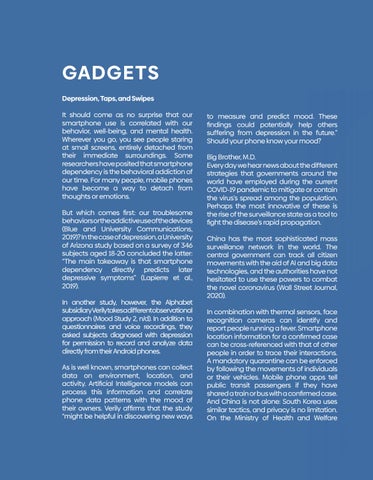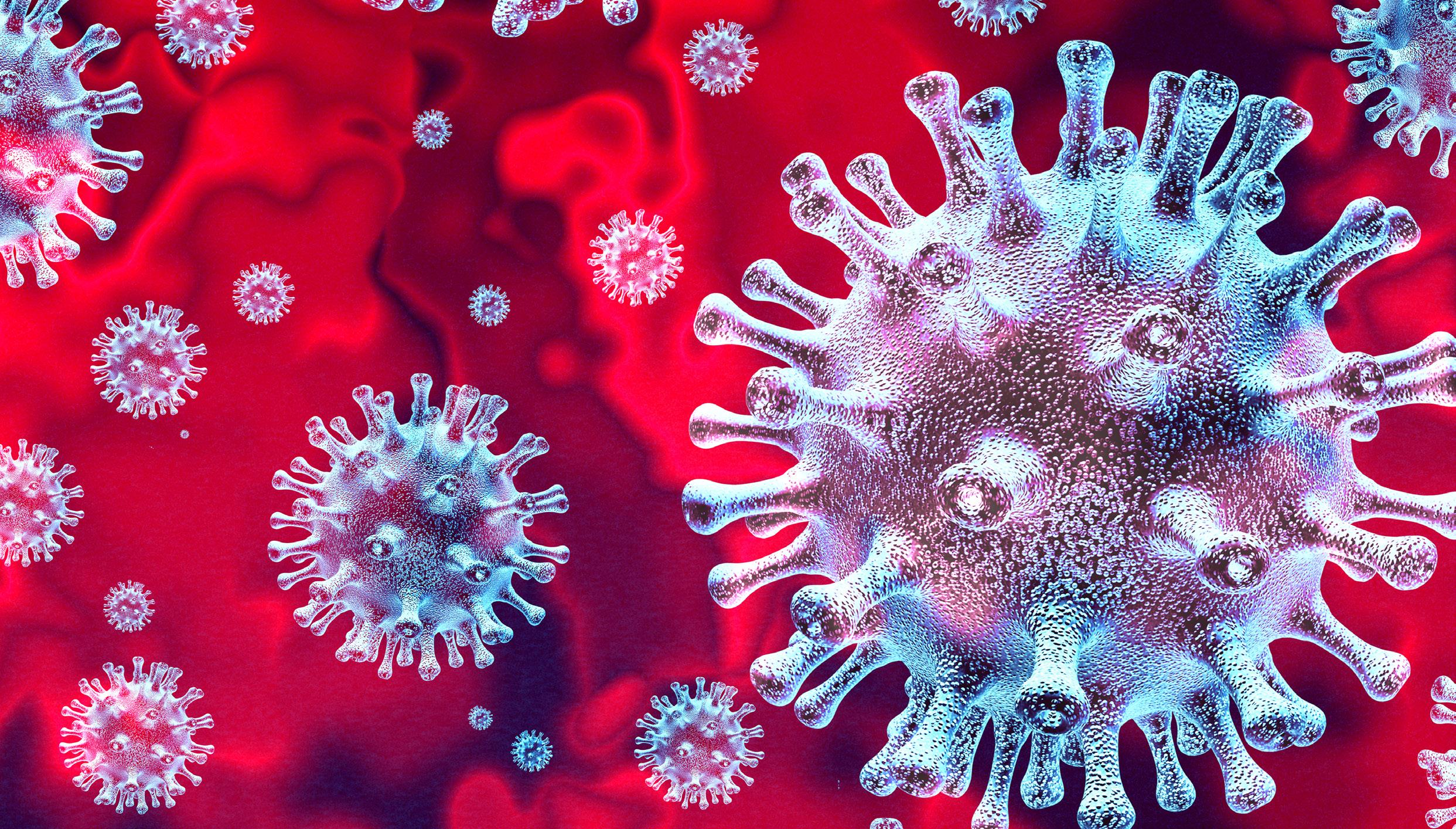[ 5 8 ]
gadgets Depression, Taps, and Swipes It should come as no surprise that our smartphone use is correlated with our behavior, well-being, and mental health. Wherever you go, you see people staring at small screens, entirely detached from their immediate surroundings. Some researchers have posited that smartphone dependency is the behavioral addiction of our time. For many people, mobile phones have become a way to detach from thoughts or emotions. But which comes first: our troublesome behaviorsortheaddictiveuseofthedevices (Blue and University Communications, 2019)? In the case of depression, a University of Arizona study based on a survey of 346 subjects aged 18-20 concluded the latter: “The main takeaway is that smartphone dependency directly predicts later depressive symptoms” (Lapierre et al., 2019). In another study, however, the Alphabet subsidiaryVerilytakesadifferentobservational approach (Mood Study 2, n/d). In addition to questionnaires and voice recordings, they asked subjects diagnosed with depression for permission to record and analyze data directly from their Android phones. As is well known, smartphones can collect data on environment, location, and activity. Artificial Intelligence models can process this information and correlate phone data patterns with the mood of their owners. Verily affirms that the study “might be helpful in discovering new ways
to measure and predict mood. These findings could potentially help others suffering from depression in the future.” Should your phone know your mood? Big Brother, M.D. Every day we hear news about the different strategies that governments around the world have employed during the current COVID-19 pandemic to mitigate or contain the virus’s spread among the population. Perhaps the most innovative of these is the rise of the surveillance state as a tool to fight the disease’s rapid propagation. China has the most sophisticated mass surveillance network in the world. The central government can track all citizen movements with the aid of AI and big data technologies, and the authorities have not hesitated to use these powers to combat the novel coronavirus (Wall Street Journal, 2020). In combination with thermal sensors, face recognition cameras can identify and report people running a fever. Smartphone location information for a confirmed case can be cross-referenced with that of other people in order to trace their interactions. A mandatory quarantine can be enforced by following the movements of individuals or their vehicles. Mobile phone apps tell public transit passengers if they have shared a train or bus with a confirmed case. And China is not alone: South Korea uses similar tactics, and privacy is no limitation. On the Ministry of Health and Welfare




















